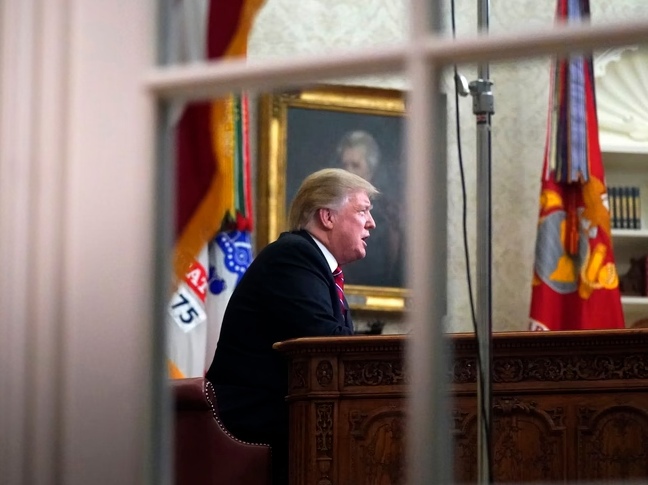Even if anyone in the political elite hoped that the four indictments against former President Donald Trump would hurt him, make him withdraw from the election, so it was in vain. These accusations, on the contrary, had a positive effect on his political fate.
A year and a half before the elections, we can see the following picture: Trump is going to the GOP nomination and has a fair chance of defeating President Biden or any other Democrat.
A lot can happen in the next 14 months. Trump could still lose to one of his current GOP rivals or a late entrant. A health crisis — God forbid — could force Biden from the race. A criminal conviction could finally break Trump’s hold on the GOP electorate: Forty-five percent of Republicans won’t vote for him if he’s found guilty; 52 percent if he goes to prison, according to a recent Reuters-Ipsos poll.
If nothing changes, however, the country will see a repeat of the 2020 challenge. And that means the United States, upon whose political stability such matters as the security of Europe and Asia and the world’s reserve currency ultimately depend, could be facing a crisis of presidential legitimacy — regardless of who wins or how cleanly.
For Trump and, apparently, tens of millions of his followers, there is no such thing as a free and fair election that he loses. Indicting him, however necessary and appropriate, provides a narrative about “election interference” and “jailing political opponents” that Trump is already exploiting. The indictments have not deterred him from lying about the result in 2020 and will not deter him from creating new lies about 2024. A basis is being laid for people on either side to question or reject an outcome they don’t like.
Trump could win fair and square. Trump today is regarded favorably by 39.8 percent of the public, according to the FiveThirtyEight polling average. That’s up 0.8 percentage points from Feb. 1, 2021. Biden’s personal favorability is at 41.2 percent.
Trump’s probable path to actual victory is via a slender electoral vote majority, with less than a majority of the popular vote, quite possibly aided by a third-party drain on Biden’s votes. Trump might indeed arrive at his swearing-in on Jan. 20, 2025, having been convicted, still facing trial in other cases — or both. And he would owe his political survival to religious fundamentalists and right-wing nationalists, who would staff key positions in his government.
The world has recently gotten a taste of what can happen when a right-wing leader stages a comeback, based on a narrow mandate and beholden to extreme elements of his coalition, while still on trial for alleged corruption: Benjamin Netanyahu’s return as Israel’s prime minister last year. The secular and liberal half of Israeli society staged mass protests of what it saw as threateningly radical policy changes by a government that did not deserve to rule. Something similar could await Trump.
Democrats are starting to embrace a novel legal theory that Trump, because of his role in the Jan. 6, 2021, attack, should be kicked off the ballot under the 14th Amendment’s bar on office-holding by insurrectionists. Trump’s disqualification would enrage his supporters, with unpredictable consequences; if it does not happen, and Trump wins, then the 14th Amendment would add yet another argument for opponents to resist his presidency.
